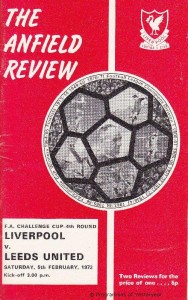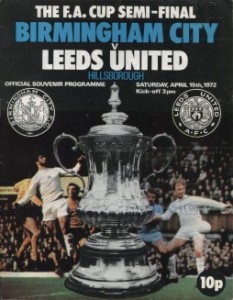Book Review: How to be a Football Manager by Ian Holloway
 With the managerial roundabout in full swing already this season, the question once more crops up: who would want to be a football manager? Well, ask most football fans, and they’ll probably think they can do a better job than some managers, and they may not be wrong. Let’s be honest, we’ve all sat there, in the stands or on the sofa, watching our teams lose and called out the manager for their tactical choices, their personnel choices or, perhaps in lieu of anything else, their fashion choices. After all, when it’s all going pear-shaped, we often wonder how hard can it be to pick eleven players, to get them passing ten yards, to not concede yet again? From our lofty perches, it seems like child’s play, but former QPR and Blackpool manager Ian Holloway has been there, done it and got the stories to prove it’s a lot harder than it looks. So, just before you hit send to wing your CV over to put your name in the managerial race for those teams looking for the next Pep Guardiola, it might be worth a quick perusal of Holloway’s How To Be A Football Manager, to discover just what it takes to sit in the managerial hot seat.
With the managerial roundabout in full swing already this season, the question once more crops up: who would want to be a football manager? Well, ask most football fans, and they’ll probably think they can do a better job than some managers, and they may not be wrong. Let’s be honest, we’ve all sat there, in the stands or on the sofa, watching our teams lose and called out the manager for their tactical choices, their personnel choices or, perhaps in lieu of anything else, their fashion choices. After all, when it’s all going pear-shaped, we often wonder how hard can it be to pick eleven players, to get them passing ten yards, to not concede yet again? From our lofty perches, it seems like child’s play, but former QPR and Blackpool manager Ian Holloway has been there, done it and got the stories to prove it’s a lot harder than it looks. So, just before you hit send to wing your CV over to put your name in the managerial race for those teams looking for the next Pep Guardiola, it might be worth a quick perusal of Holloway’s How To Be A Football Manager, to discover just what it takes to sit in the managerial hot seat.
There are few managers as entertaining and honest as Ian Holloway, traits that have occasionally backfired on him, but nonetheless made him a memorable and engaging character in the game. Having spent almost two decades playing, for the likes of Bristol Rovers and QPR, Holloway continued his footballing career on the side-lines as manager at clubs including Leicester City, Crystal Palace and most recently Grimsby Town. Across four decades in the game, there’s very little that Holloway has not seen, done or experienced, working across the leagues, and whilst a post-match glass of wine with Arsene Wenger or a pre-season friendly against Real Madrid may sound like the stuff of dreams, the life of a football manager is often much more mundane and challenging. From picking a starting XI to overseeing contract negotiations, dealing with referees to managing in a pandemic, Ian Holloway reflects on the highs and lows in the dugout with his trademark honesty.
The book is full of Holloway’s own stranger-than-fiction real-life episodes, including the time he put his personal address on the QPR website inviting disgruntled fans to come and share their grievances face to face (none did) and the time that a pre-season prank by his players ended up with Holloway making a trip to the local police station. Holloway’s managerial career is littered with such frankly outlandish but true tales, begging the question whether it could only happen to Holloway or whether Jurgen Klopp has a similar dossier that he’s just waiting to release. Although I can’t imagine Klopp, or any manager in the top leagues come to think of it, inviting round disgruntled fans – and they’re probably wise not to. But when it comes to player acquisition, chairmen strife and press conferences, off-piste coaching and handling players, Holloway may very well be in a league of his own.
As mentioned already, one of the great strengths of Holloway, that comes across so explicitly in this book, is his honesty, but not only honesty, a complete candidness and forthrightness. And crucially it’s an honesty that is applied equally to everything, be that when he speaks about difficult chairmen, underperforming players or himself. Indeed, Holloway is unflinchingly honest about his own failings and shortcomings, recognising the moments where he has made a mistake or overstepped the mark, and neither too afraid nor too proud to try to make a change. It’s a shame that the same can’t be said for some of the other characters in the book. Above all, it’s obvious that Holloway is a man of principle and integrity, one that loves the game and wants to see the best version of it, whether in himself, his team or his supporters. He speaks passionately about protecting his players, about making difficult decisions and his commitment to his teams and you just know that what you see is what you get with Holloway. He is the type of manager who you could bump into in the street, or, as he prefers, in the second-hand shop, and discuss football with, and he would be as honest and open as ever. He would entertain you with stories of the good, the bad and the ugly of the football world, and leave you feeling energised once more about the game, despite the latest VAR debacle, your out-of-nick striker and your penny-pinching owners. He would remind you just why we all love this little old sport called football and why a good manager is much more than their tactics.
Without Holloway, the game has lost one of its larger-than-life characters, but during his hiatus, his book offers a refreshing, eye-opening insight into the real world of football management. Holloway, in yet another measure of the man, thanks ghost-writer David Clayton in the acknowledgements, a classy but oft-overlooked touch in such books, and Clayton merits these plaudits as the book perfectly encapsulates all that fans know and love about Ian Holloway – frank, passionate, down-to-earth and fair. For anyone polishing their managerial CV, those qualities aren’t bad ones to start with.
Jade Craddock
(Publisher: Headline. October 2022. Hardcover: 320 pages)
Buy here: Ian Holloway
 With the advent of books about football terrace culture in the late 1990’s from writers such as John King and more recently Dougie Brimson, this genre has gradually gained an acceptance and recognition in the literary world. Chris Brown is a Bristol Rovers fan, who in the 1970’s was a skinhead on the terraces in the Tote End at Eastville (Rovers home ground up until 1986), who detailed his experiences, the music and fashion of the time in his autobiographical book Bovver (published 2001); it was subsequently updated and released in 2009 as Booted and Suited. Following on from the success of these books, Chris Brown has written his first novel, Guilty Tiger, which draws on his Bristol roots and some of the themes of his earlier work.
With the advent of books about football terrace culture in the late 1990’s from writers such as John King and more recently Dougie Brimson, this genre has gradually gained an acceptance and recognition in the literary world. Chris Brown is a Bristol Rovers fan, who in the 1970’s was a skinhead on the terraces in the Tote End at Eastville (Rovers home ground up until 1986), who detailed his experiences, the music and fashion of the time in his autobiographical book Bovver (published 2001); it was subsequently updated and released in 2009 as Booted and Suited. Following on from the success of these books, Chris Brown has written his first novel, Guilty Tiger, which draws on his Bristol roots and some of the themes of his earlier work. “On what grounds are you applying to read English at Liverpool of all places?” my mystified English teacher asked me. How could I tell him the grounds were Anfield and Goodison Park?
“On what grounds are you applying to read English at Liverpool of all places?” my mystified English teacher asked me. How could I tell him the grounds were Anfield and Goodison Park?